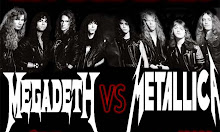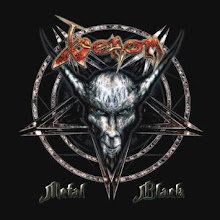
AC/DC are an Australian rock band formed in 1973 by brothers Malcolm and Angus Young. Although the band are commonly classified as hard rock and are considered a pioneer of heavy metal, they have always classified their music as rock and roll.
Brothers Malcolm, Angus and George Young were born in Glasgow, Scotland, and moved to Sydney with most of their family in 1963. George was the first to learn to play the guitar. He became a member of the Easybeats, one of Australia's most successful bands of the 1960s. In 1966, they became the first local rock act to have an international hit, with the song "Friday on My Mind".Malcolm followed in George's footsteps by playing with a Newcastle, New South Wales, band called the Velvet Underground (not to be confused with the New York–based Velvet Underground).
Malcolm and Angus Young developed the idea for the band's name after their older sister saw the initials "AC/DC" on a sewing machine. "AC/DC" is an abbreviation for "alternating current/direct current". The brothers felt that this name symbolised the band's raw energy, power-driven performances, and a love for their music. "AC/DC" is pronounced one letter at a time, though the band is popularly known as "Acca Dacca" in Australia.
In 1976, the band signed an international deal with Atlantic Records and toured extensively throughout Europe. They gained invaluable experience of the stadium circuit, supporting leading hard rock acts such as Black Sabbath, Aerosmith, Kiss, Styx and Blue Öyster Cult, and co-headlined with Cheap Trick.
The first AC/DC album to gain worldwide distribution was a 1976 compilation of tracks taken from the High Voltage and T.N.T. LPs. Also titled High Voltage, and released on the Atlantic Records label, the album sold three million copies worldwide, partly because of its popularity with a British punk audience. The track selection was heavily weighted toward the more recent T.N.T., and included only two songs from their first LP. The band's next album, Dirty Deeds Done Dirt Cheap, was released in the same year in both Australian and international versions, like its predecessor. Track listings varied worldwide, and the international version of the album also featured "Rocker" from T.N.T. The original Australian version included "Jailbreak" (now more readily available on the 1984 compilation EP '74 Jailbreak or as a live version on the 1992 Live album). Dirty Deeds was not released in the US until 1981, by which time the band were at the peak of their popularity.
The band's next album, For Those About to Rock We Salute You, was their first album to reach number one in the United States. AC/DC declined in popularity soon after drummer Phil Rudd was fired in 1983 and was replaced by future Dio drummer Simon Wright, though the band resurged in the early 1990s with the release of The Razor's Edge. Phil Rudd returned in 1994 (after Chris Slade was asked to leave in favour of him) and contributed to the band's 1995 album Ballbreaker. Stiff Upper Lip was released in 2000 and was well received by critics. The band's most recent album, Black Ice, was released on 20 October 2008.
As of 2008, AC/DC have sold more than 200 million albums worldwide, including 71 million albums in the United States. Back in Black has sold an estimated 45 million units worldwide, making it the highest-selling album by any band and the 2nd highest-selling album in history, behind "Thriller" by Michael Jackson. The album has sold 22 million in the US alone, where it is the fifth-highest-selling album. AC/DC ranked fourth on VH1's list of the "100 Greatest Artists of Hard Rock" and was named the seventh "Greatest Heavy Metal Band of All Time" by MTV.[11] In 2004, the band was ranked number 72 in the Rolling Stone list of the "100 Greatest Artists of All Time".
Bronze statue of Bon Scott, unveiled in Fremantle, Western Australia, in October 2008 AC/DC were a formative influence on New Wave of British Heavy Metal bands who emerged in the late 1970s, such as Saxon and Iron Maiden, in part as a reaction to the decline of traditional early 1970s heavy metal bands.
The 1978 release of Powerage marked the debut of bassist Cliff Williams, and with its harder riffs, followed the blueprint set by Let There Be Rock. Only one single was released for Powerage, "Rock 'n' Roll Damnation" and gave AC/DC the highest mark at the time, reaching #24. An appearance at the Apollo Theatre in Glasgow during the Powerage tour was recorded and released as If You Want Blood You've Got It, featuring such songs as "Whole Lotta Rosie", "Problem Child", and "Let There Be Rock", as well as lesser-known album tracks like "Riff Raff". The album was the last produced by Harry Vanda and George Young with Bon Scott on vocals and is claimed to be AC/DC's most under-rated album.
The major breakthrough in the band's career came in their collaboration with producer "Mutt" Lange on a sixth album Highway to Hell, released in 1979. It became the first AC/DC LP to break into the US top 100, eventually reaching #17, and it propelled AC/DC into the top ranks of hard rock acts. Highway to Hell had lyrics that shifted away from flippant and comical toward more central rock themes, putting increased emphasis on backing vocals but still featured AC/DC's signature sound: loud, simple, pounding riffs and grooving backbeats. The final track, "Night Prowler", has two breaths in quick succession at the start of the song, intended to create a tone of fear and loathing.
Brothers Malcolm, Angus and George Young were born in Glasgow, Scotland, and moved to Sydney with most of their family in 1963. George was the first to learn to play the guitar. He became a member of the Easybeats, one of Australia's most successful bands of the 1960s. In 1966, they became the first local rock act to have an international hit, with the song "Friday on My Mind".Malcolm followed in George's footsteps by playing with a Newcastle, New South Wales, band called the Velvet Underground (not to be confused with the New York–based Velvet Underground).
Malcolm and Angus Young developed the idea for the band's name after their older sister saw the initials "AC/DC" on a sewing machine. "AC/DC" is an abbreviation for "alternating current/direct current". The brothers felt that this name symbolised the band's raw energy, power-driven performances, and a love for their music. "AC/DC" is pronounced one letter at a time, though the band is popularly known as "Acca Dacca" in Australia.
In 1976, the band signed an international deal with Atlantic Records and toured extensively throughout Europe. They gained invaluable experience of the stadium circuit, supporting leading hard rock acts such as Black Sabbath, Aerosmith, Kiss, Styx and Blue Öyster Cult, and co-headlined with Cheap Trick.
The first AC/DC album to gain worldwide distribution was a 1976 compilation of tracks taken from the High Voltage and T.N.T. LPs. Also titled High Voltage, and released on the Atlantic Records label, the album sold three million copies worldwide, partly because of its popularity with a British punk audience. The track selection was heavily weighted toward the more recent T.N.T., and included only two songs from their first LP. The band's next album, Dirty Deeds Done Dirt Cheap, was released in the same year in both Australian and international versions, like its predecessor. Track listings varied worldwide, and the international version of the album also featured "Rocker" from T.N.T. The original Australian version included "Jailbreak" (now more readily available on the 1984 compilation EP '74 Jailbreak or as a live version on the 1992 Live album). Dirty Deeds was not released in the US until 1981, by which time the band were at the peak of their popularity.
The band's next album, For Those About to Rock We Salute You, was their first album to reach number one in the United States. AC/DC declined in popularity soon after drummer Phil Rudd was fired in 1983 and was replaced by future Dio drummer Simon Wright, though the band resurged in the early 1990s with the release of The Razor's Edge. Phil Rudd returned in 1994 (after Chris Slade was asked to leave in favour of him) and contributed to the band's 1995 album Ballbreaker. Stiff Upper Lip was released in 2000 and was well received by critics. The band's most recent album, Black Ice, was released on 20 October 2008.
As of 2008, AC/DC have sold more than 200 million albums worldwide, including 71 million albums in the United States. Back in Black has sold an estimated 45 million units worldwide, making it the highest-selling album by any band and the 2nd highest-selling album in history, behind "Thriller" by Michael Jackson. The album has sold 22 million in the US alone, where it is the fifth-highest-selling album. AC/DC ranked fourth on VH1's list of the "100 Greatest Artists of Hard Rock" and was named the seventh "Greatest Heavy Metal Band of All Time" by MTV.[11] In 2004, the band was ranked number 72 in the Rolling Stone list of the "100 Greatest Artists of All Time".
Bronze statue of Bon Scott, unveiled in Fremantle, Western Australia, in October 2008 AC/DC were a formative influence on New Wave of British Heavy Metal bands who emerged in the late 1970s, such as Saxon and Iron Maiden, in part as a reaction to the decline of traditional early 1970s heavy metal bands.
The 1978 release of Powerage marked the debut of bassist Cliff Williams, and with its harder riffs, followed the blueprint set by Let There Be Rock. Only one single was released for Powerage, "Rock 'n' Roll Damnation" and gave AC/DC the highest mark at the time, reaching #24. An appearance at the Apollo Theatre in Glasgow during the Powerage tour was recorded and released as If You Want Blood You've Got It, featuring such songs as "Whole Lotta Rosie", "Problem Child", and "Let There Be Rock", as well as lesser-known album tracks like "Riff Raff". The album was the last produced by Harry Vanda and George Young with Bon Scott on vocals and is claimed to be AC/DC's most under-rated album.
The major breakthrough in the band's career came in their collaboration with producer "Mutt" Lange on a sixth album Highway to Hell, released in 1979. It became the first AC/DC LP to break into the US top 100, eventually reaching #17, and it propelled AC/DC into the top ranks of hard rock acts. Highway to Hell had lyrics that shifted away from flippant and comical toward more central rock themes, putting increased emphasis on backing vocals but still featured AC/DC's signature sound: loud, simple, pounding riffs and grooving backbeats. The final track, "Night Prowler", has two breaths in quick succession at the start of the song, intended to create a tone of fear and loathing.






No comments:
Post a Comment